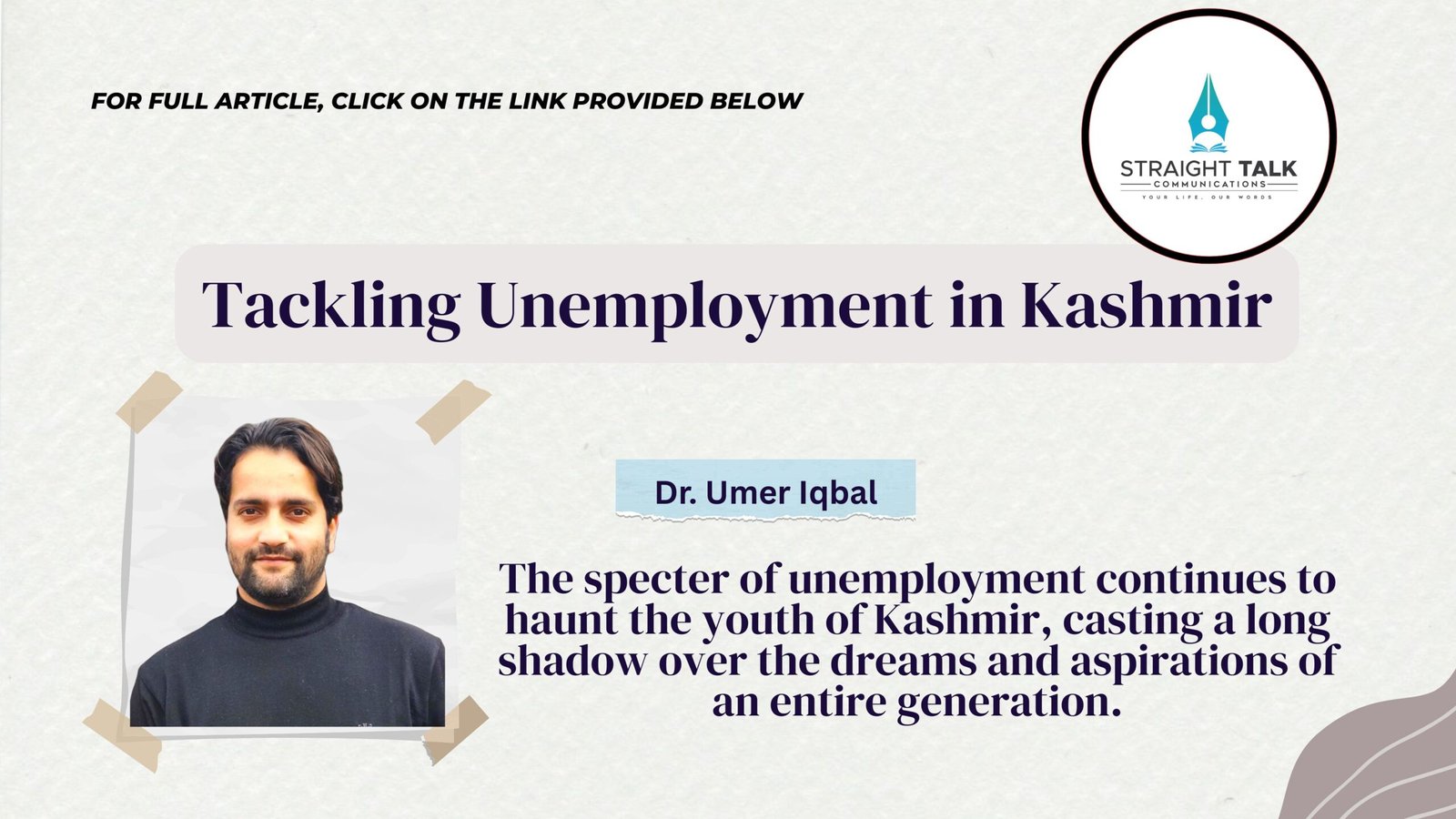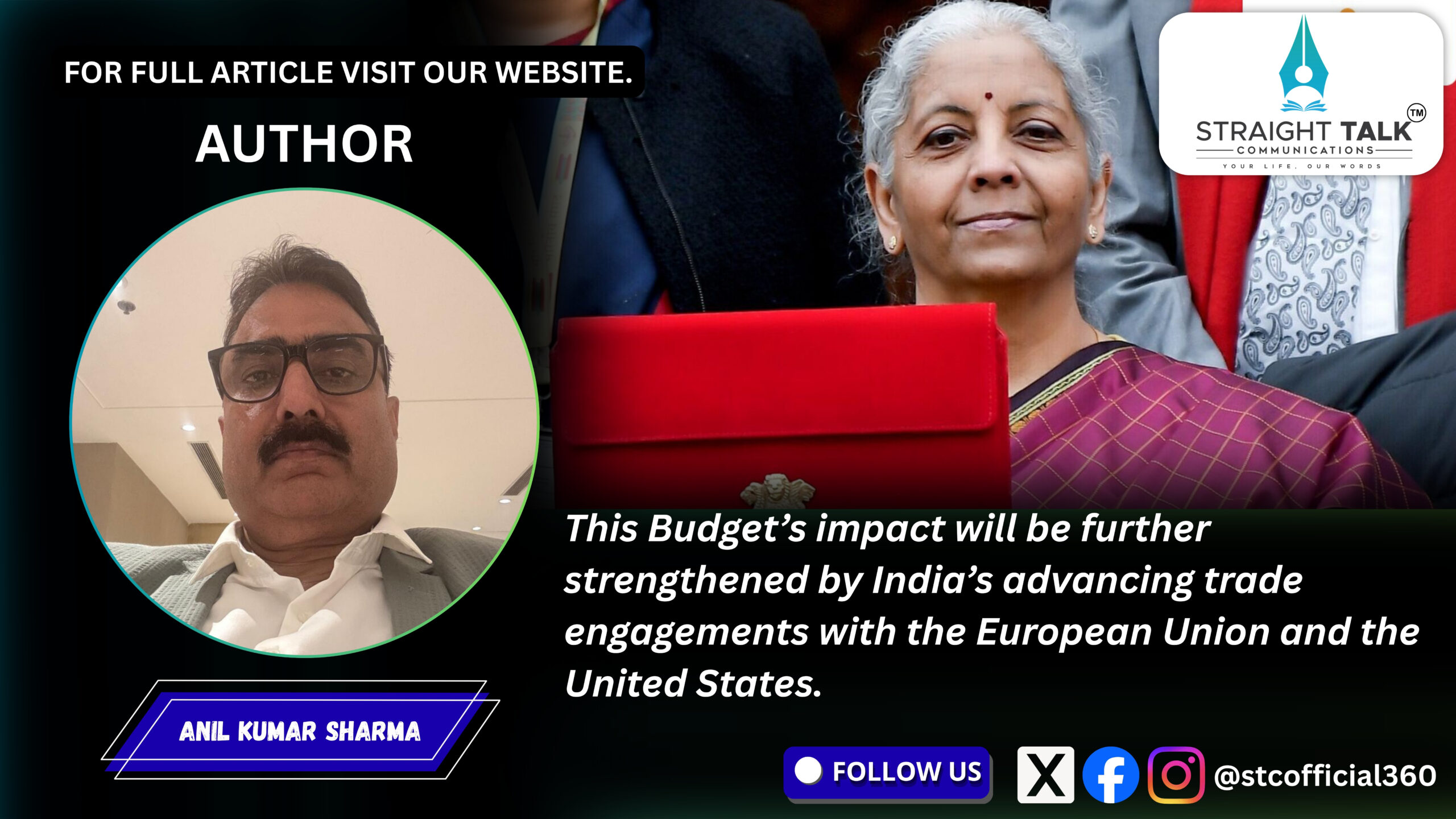Tackling Unemployment in Kashmir

Dr. Umer Iqbal
The specter of unemployment continues to haunt the youth of Kashmir, casting a long shadow over the dreams and aspirations of an entire generation. Despite academic achievements and increasing literacy rates, the gap between education and employability remains disturbingly wide. Today, a substantial number of young graduates and postgraduates are finding themselves without work, left disillusioned in a system that has failed to align learning with livelihood.
Unemployment in Kashmir is not just an economic issue; it is a social and psychological crisis. It breeds frustration, mental health challenges, and sometimes even pushes the vulnerable youth toward negative paths. The government’s efforts, though well-intentioned, have largely revolved around short-term recruitment drives, which offer temporary relief but do little to address the core of the issue: lack of skill-based education.
It is high time we reconsider the very foundation of our education system. While theoretical knowledge has its place, it is technical and vocational training that can equip students with practical skills directly applicable in the job market or in entrepreneurship. Therefore, I strongly advocate for the introduction of technical training’s and vocational courses starting from Class 8 onwards.
Imagine a student from a modest background in Baramulla or Pulwama, who, alongside basic subjects, learns plumbing, electrical work, carpentry, tailoring, coding, or even digital marketing by the time he or she completes school. That student would be empowered not just with a certificate but with a skill that commands value in the market. Whether the path leads to a job, freelancing, or even starting a small business, the transition from classroom to career becomes more achievable.
Furthermore, introducing technical streams in secondary education will also help reduce the pressure on government jobs, an area oversaturated and no longer sustainable as the sole provider of employment. Students will instead be encouraged to explore self-employment, startups, and service-based trades, imbibing a culture of independence and innovation.
For this vision to succeed, the government must invest in modernising school infrastructure, training teachers in technical disciplines, and creating partnerships with industry professionals. Incentives should also be provided to schools that successfully implement and sustain vocational streams.
Kashmir cannot afford to continue producing degree-holders without direction. The time for change is now. By reimagining education through a practical and technical lens from as early as Class 8, we give our youth a fighting chance, not just to dream, but to earn, to grow, and to contribute meaningfully to the socio-economic fabric of our society.
Let us educate to empower. Let us teach to transform.
Dr Umer Iqbal is Editor Straight Talk Communications. He can be mailed at: editor@straight-talk-communications.com







